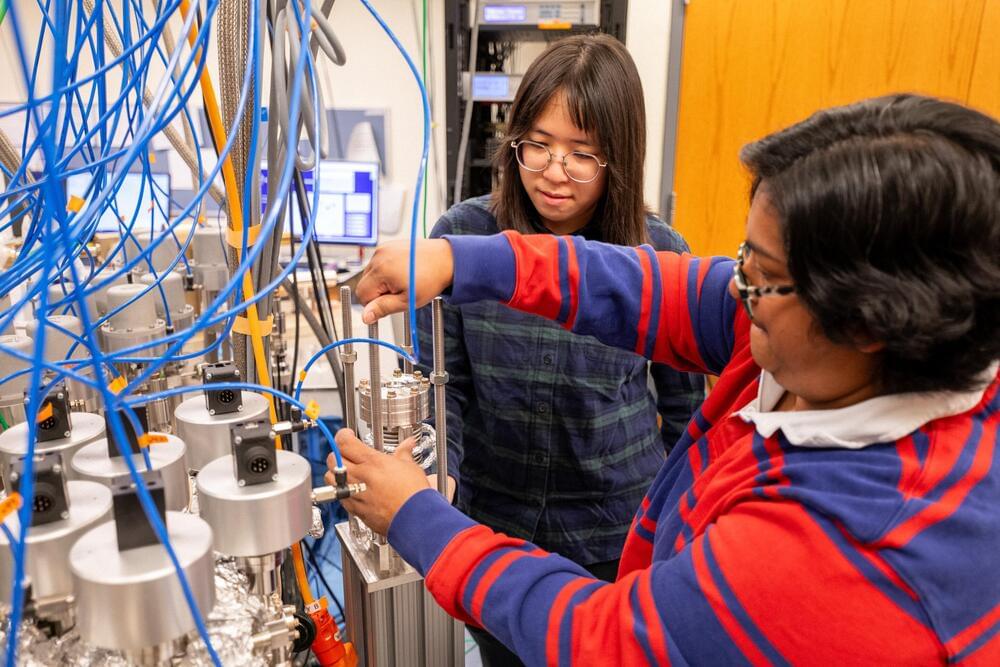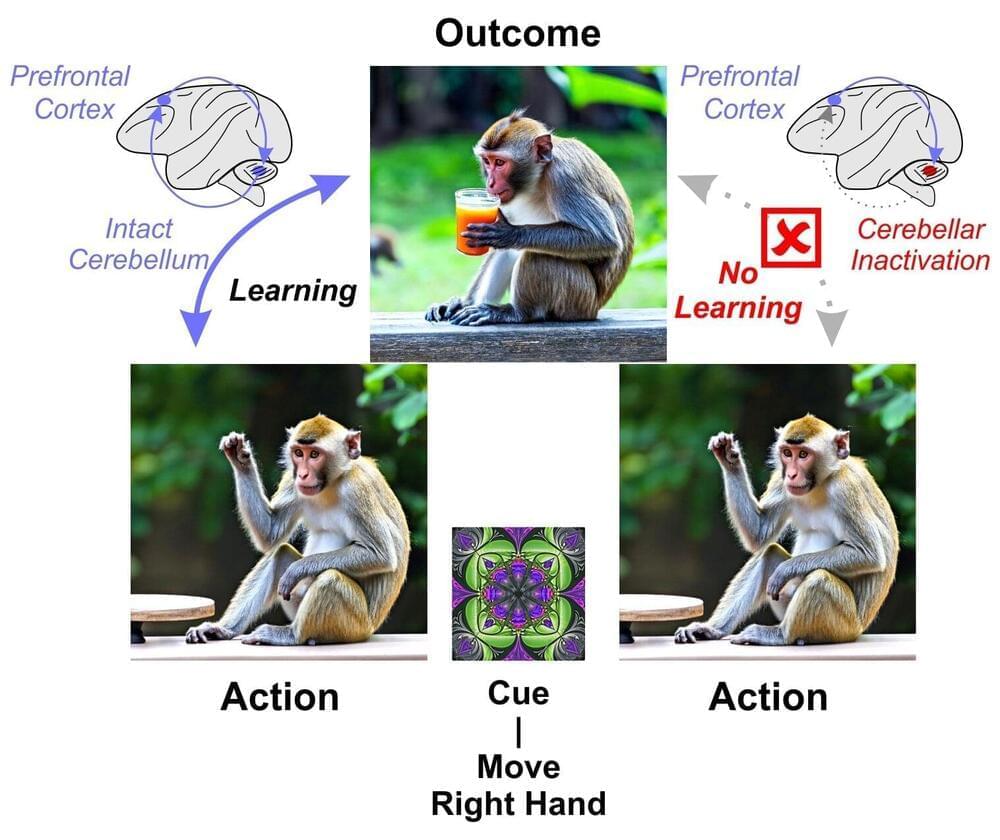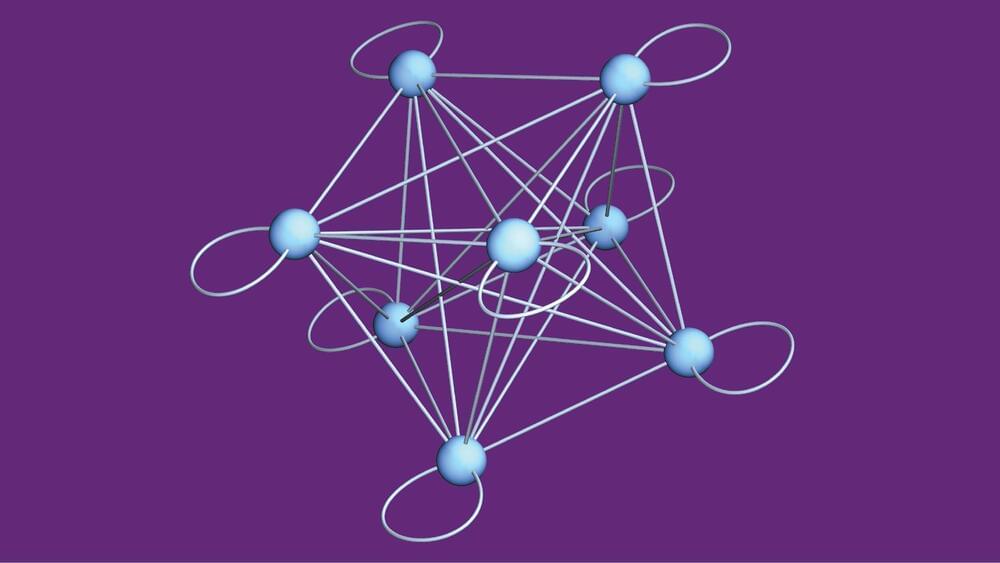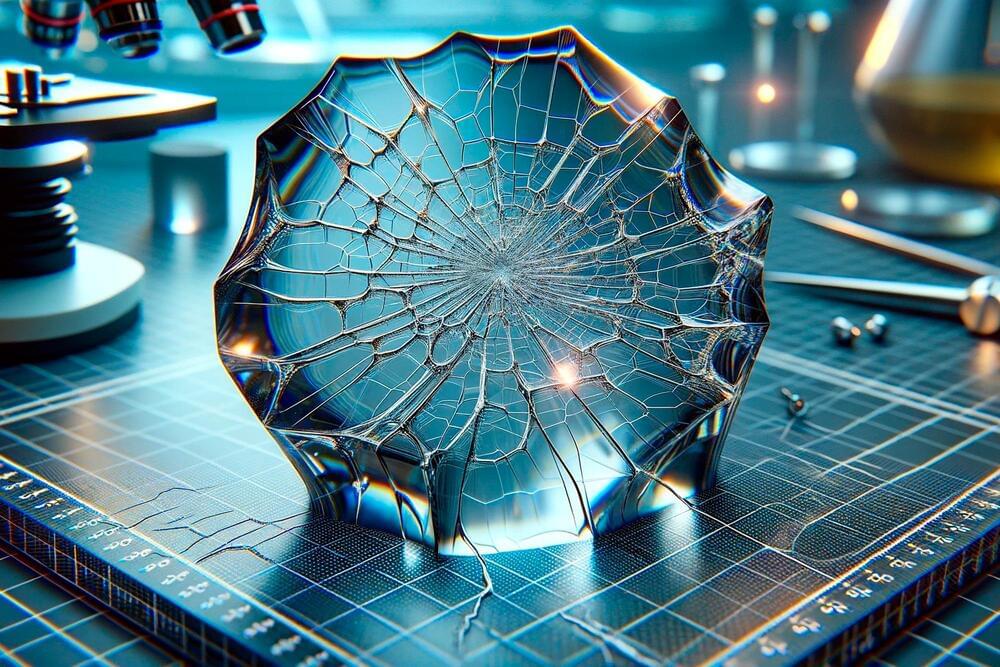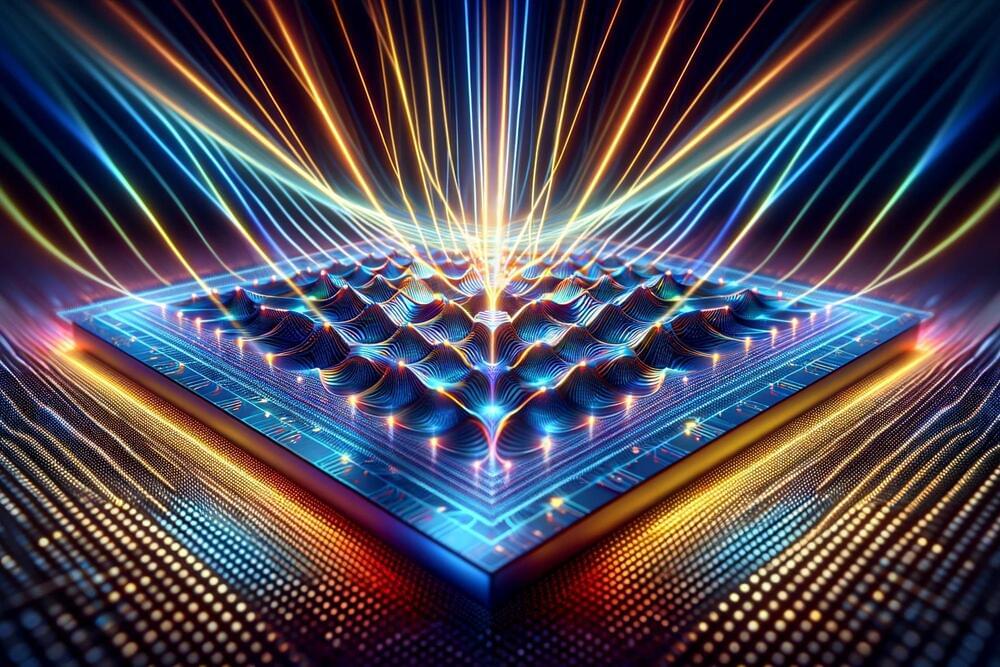Graphene is the setting for the first demonstration of relativistic electrons’ paradoxical ability to whiz through a barrier, provided the barrier is high enough.
If an electron in a material has a speed that is independent of its energy and if it encounters a barrier head on, it can tunnel straight through. Derived by theorist Oskar Klein in 1929, this counterintuitive finding remained little tested in the lab because it is hard to make electrons approach a barrier head on and to stop them scattering off the edges of the sample. Now Mirza Elahi of the University of Virginia and his collaborators have observed evidence of Klein tunneling in monolayer graphene. What’s more, they also observed the opposite effect, anti-Klein tunneling, in bilayer graphene. In anti-Klein tunneling, head-on electrons do not tunnel at all, while others approaching the barrier at an intermediate angle do [1].
Graphene’s hexagonal lattice can be thought of as two identical interpenetrating triangular sublattices. One consequence of that view is that graphene’s charge carriers—electrons that hop between the two sublattices—behave as if massless and relativistic at low energies. Another consequence is that the two sublattices bestow on the electrons a chiral property, pseudospin, that resembles spin, which controls the nature of the transmission across the barrier.

